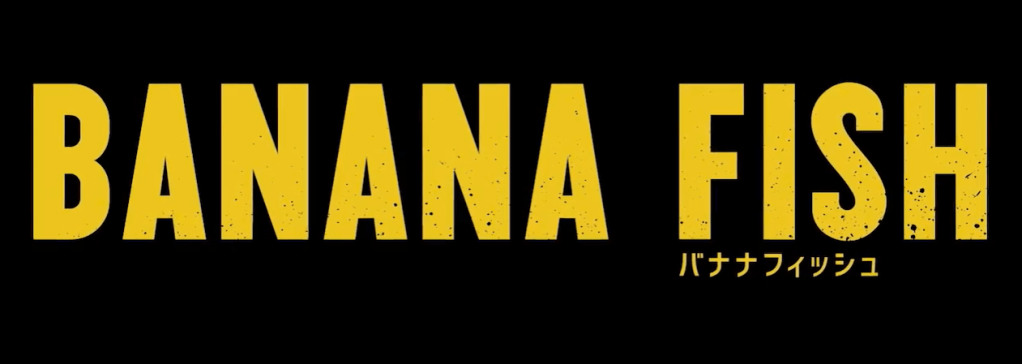
*Warning this review contains spoilers*
The animated version of Banana Fish ended in late December of 2018 and I still feel exhausted. I had a lot of hope that the anime would address the problematic aspects of the series and make much-needed updates to amend those issues, but ultimately for the better or worse the anime left a bitter taste in my mouth.
Lost in Adaptation
When the anime was announced there was a lot of initial excitement, especially from manga readers on how the series would be modernized to reflect our current-day problems, especially since the animation team was so keen on updating the series. Despite all the problematic aspects of the manga, Akimi Yoshida clearly did her research so that Banana Fish could depict the brutal historical realities that occurred in the mid-1980s to mid-1990s.
There was hope that the same level of dedication for research would be applied to the anime adaptation, but unfortunately, the anime failed to make significant changes that would truly update the series. The word “adaptation” can mean different things depending on who you ask, but for me, in the context of Banana Fish, it meant the series would create a new story while being faithful to the main themes of the manga.
In fact, the anime essentially adapted the manga faithfully and only paid lip service to our current-day issues such as replacing anything related to East Asia or Latin America and the Caribbean to the Middle East. I had hoped the new Banana Fish adaptation would reflect current social movements that are prevalent for us today such as Black Lives Matter, Indigenous Peoples Movements, War on the Middle East, Occupy Wall Street, MeToo Movement, etc. I have already discussed the treatment of characters of color and how the series explored the nuances of white supremacy in interpersonal relationships and how it continued to impact global policies on AnimeFeminist, so I will not repeat myself here.
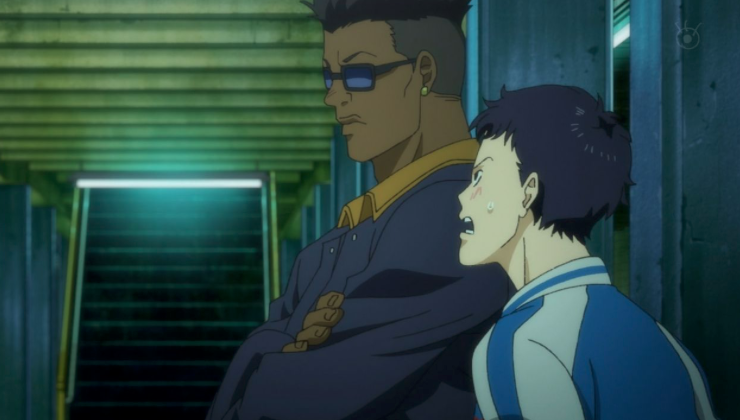
While the technological updates did improve certain moments in the anime, the rest of the series did not utilize modern technology effectively. Since the anime remained faithful to the manga, the usage of modern technology was limited to how it was used during the 1980s. Once in a while, showing the characters having cellphones and better computers did not mean there was any effort made to modernize the story.
To be fair, the few positive updates were great. Ash was able to get direct revenge against his sexual predators and the Black characters were animated to look like actual people instead of the racist caricatures portrayed in the manga. It was also nice to see the animation production paid homage to the manga’s 80’s aesthetics throughout the entire anime.
That being said, these positive updates could have been applied to the 1980s storyline, if the anime chose to remain as a historical crime drama. There was no reason to change the series timeline to 2018 and it could have been an opportunity to genuinely critique problematic tropes utilized in the 1980s such as the problem of equating all openly gay men – particularly the few gay men of color – as pedophiles and rapists.
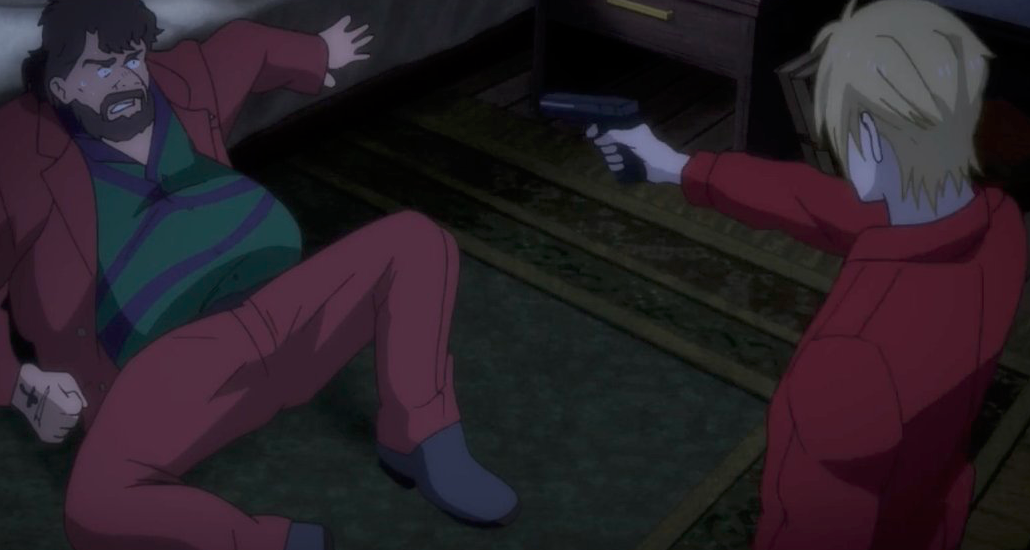
In the end, the anime was more interested in the character relationships than creating a different adaptation. The issues I discussed on AnimeFeminist are still relevant today and it’s a shame that Banana Fish did not commit to updating the socio-political drama because I sincerely believed the story could have resonated with the current generation.
Sexual Violence
At the heart, Banana Fish is a story about love and surviving sexual violence.
Throughout most of his childhood, Ash was sexually abused by wealthy and influential men. Despite his awful circumstances, Ash managed to create coping mechanisms that helped him mentally survive his abusive environment and was able to obtain limited freedom as a gang leader. While he discovered the “Banana Fish” conspiracy by accident, it helped motivate him to fight for his freedom and get revenge against his abusers.
Even though Ash had friends he could rely on for support, he never felt he could feel vulnerable with anyone until he met Eiji. Once these two developed a relationship based on mutual trust and love, Ash was able to gradually open up to his friends and gained a father-figure through Max. It made sense that Ash had a difficult time trusting any adults since all the adults that he was supposed to rely on for protection and support, failed to save him from further sexual violence. It was through Eiji, his friends and allies that Ash began to feel he was not only worthy of surviving, but worthy of creating a safe space for himself to heal and build community with people whom genuinely cared about him.
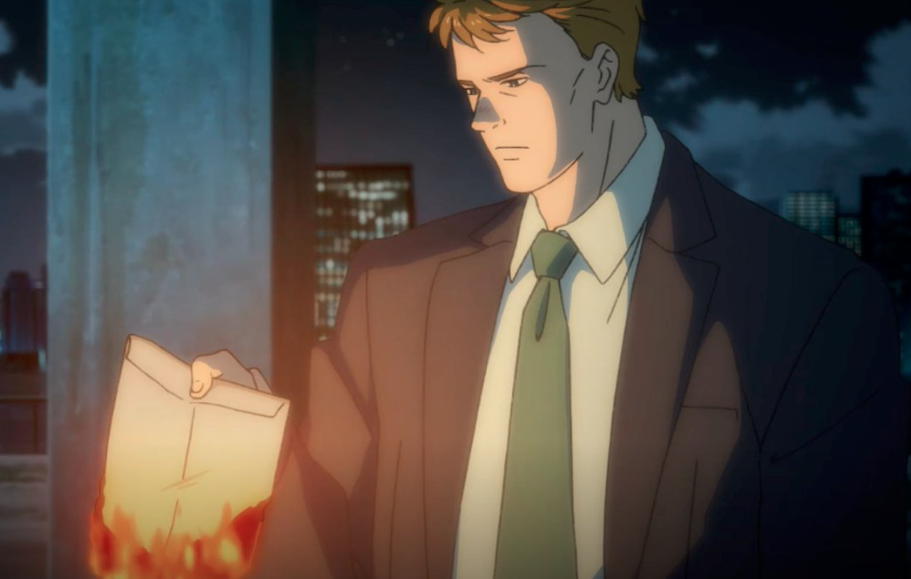
Max was one of Ash’s strongest supporters and he saw how much parental guidance Ash needed since as a parent himself he could not leave him alone. One of the most beautiful examples of Max’s parental love for Ash was when he burned all the evidence containing graphic images of Ash’s abuse and told him he did not need to be burdened with his past anymore. Ash was always someone who either sacrificed himself for everyone’s sake or shouldered all his problems alone, so for him to be told that he did not need to handle all the evils of the world alone, was immensely comforting for him.
Aside from Max, Eiji also wanted Ash to survive and he even had nightmares about Ash’s future. Eventually, Eiji decided to stay by Ash’s side for the majority of the series despite knowing he was not suitable for combat. Instead, Eiji was able to support Ash’s emotional wellbeing and helped him momentarily feel at peace during the show’s most chaotic arcs. Before Eiji left for Japan he made sure to send Ash a letter to remind him that he had the power change his fate and that there were so many wonderful opportunities waiting for him (Eiji even bought him a ticket to Japan).
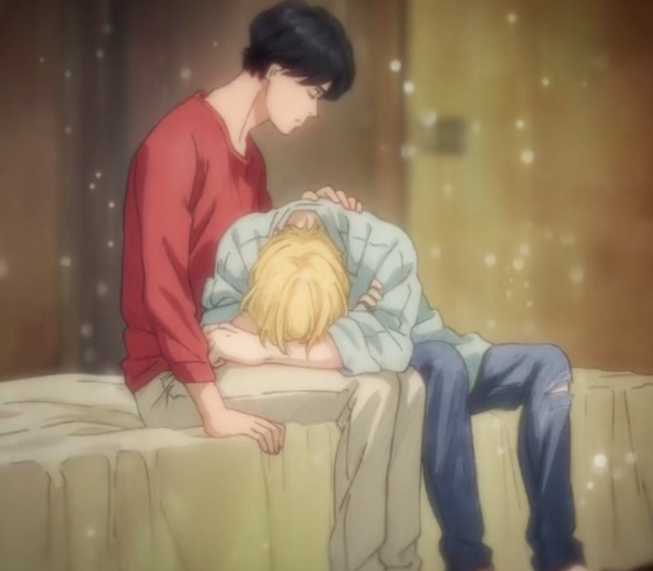
I am grateful the anime adapted these aspects of the story faithfully because it was inspiring to see Ash’s constant resilience against his abusers. Unfortunately, Banana Fish’s faults far outweigh the good and one of them being the awful message the finale sends to the viewers (I will come back to this).
The final arc was unnecessary since the stakes were already high, so adding last-minute conflicts like Eduardo Fox was redundant. In short, it was awful because not only was Ash re-traumatized, but the story had the nerve to condemn Ash’s actions as being no different or worse than the very monsters he was fighting against. Ash survived so much violence, but for him to be told that he was a danger to his loved ones by Blanca, devastated him since he already had so little regard for his own life.
Despite the early signs foreshadowing Ash’s death, everyone who cared about him actively fought against his “fate” because his death did not need to happen. Throughout the entire series, Ash constantly showed he had a strong will to live and was willing to put himself in danger in order to protect his loved ones. Whether Ash got captured or willingly surrendered himself to the antagonists, his friends always risked their own lives to save him because they saw deep down he was still a child crying out for help.
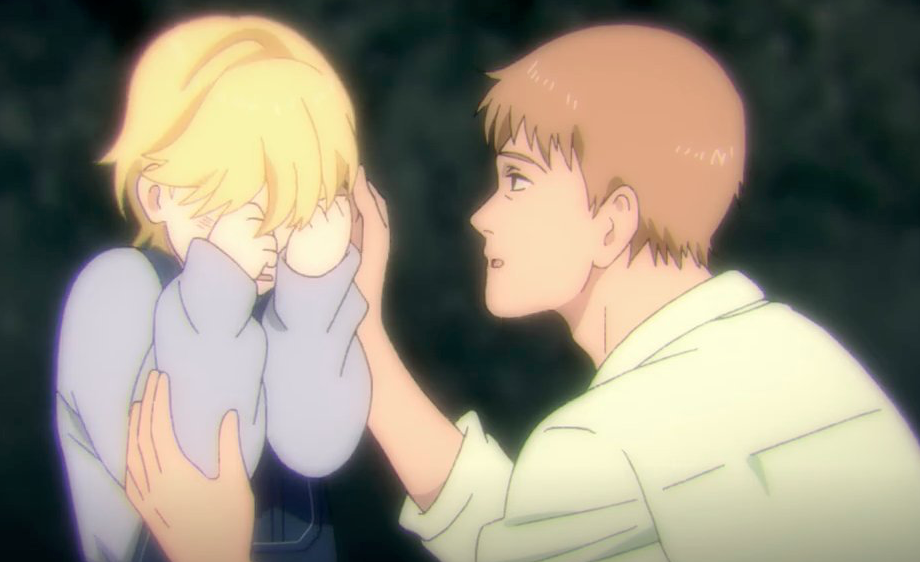
Bury Your Gays
Unfortunately, Banana Fish is a product of the 1980s and during that time harmful tropes associated with MOGAI representation were still extremely popular (it’s 2019 and that shit is still popular). Bury Your Gays is one of the many examples that has been widely critiqued and what it means is Gay characters are not allowed to have happy endings and at least one of them has to die in the end. I can begrudgingly “accept” these shitty tropes if it thematically makes sense in their respective stories, but as I mentioned earlier, Ash’s death did not make any sense.
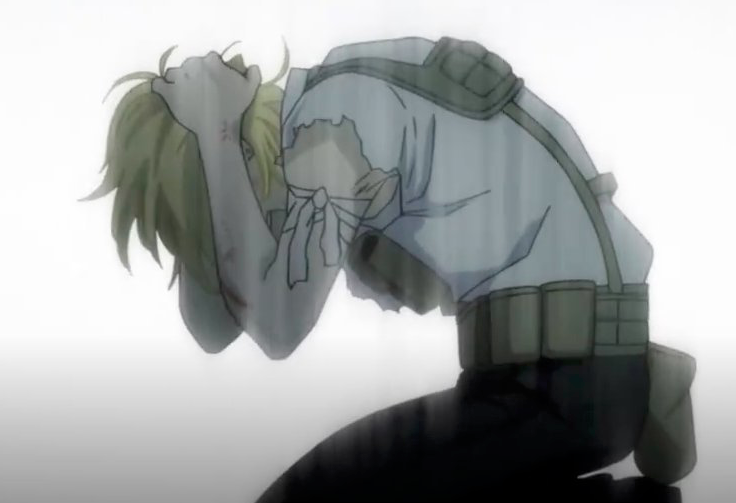
Throughout the series, Ash was almost ridiculously superhuman and there were several times in the anime he should have died due to bullet wounds or other types of injuries. Ash always miraculously survived which was a testament to his resiliency and strong desire to defeat everyone who had ever abused him. After everything Ash had been through there was no reason for him to easily give up his life especially since he fought against the odds to earn his freedom (he even said the wound he got from Lao was non-fatal). In short, the ending felt cheap and went against everything Ash stood for.
What’s even worse was that Banana Fish had the nerve to punish Eiji for his earnest pleas for Ash to live while the side cis-hetero couples were allowed to have a future. I love Max and Jessica as individuals, but I was not invested in the survival of their marriage. While I am sad almost everything related to Nadia was deleted, I am glad her relationship with Charlie was omitted because it was pointless.
The anime spared us from seeing the immense pain Eiji experienced after Ash’s death, but since Banana Fish is all about pain the manga side chapter called “Garden of Light” dealt with the aftermath, 7 years later. Eiji blamed himself for Ash’s death and for years he could not look at any photos of Ash because it was mentally agonizing for him. The sight of Eiji running towards any stranger who resembled Ash was not only heartbreaking, but was one of the cruelest things Banana Fish ever did to him. While the end of the chapter indicated that Eiji was finally ready to move on, it does not change the fact that story condemned Eiji’s letter as the reason Ash exposed himself to danger that ultimately got him killed.
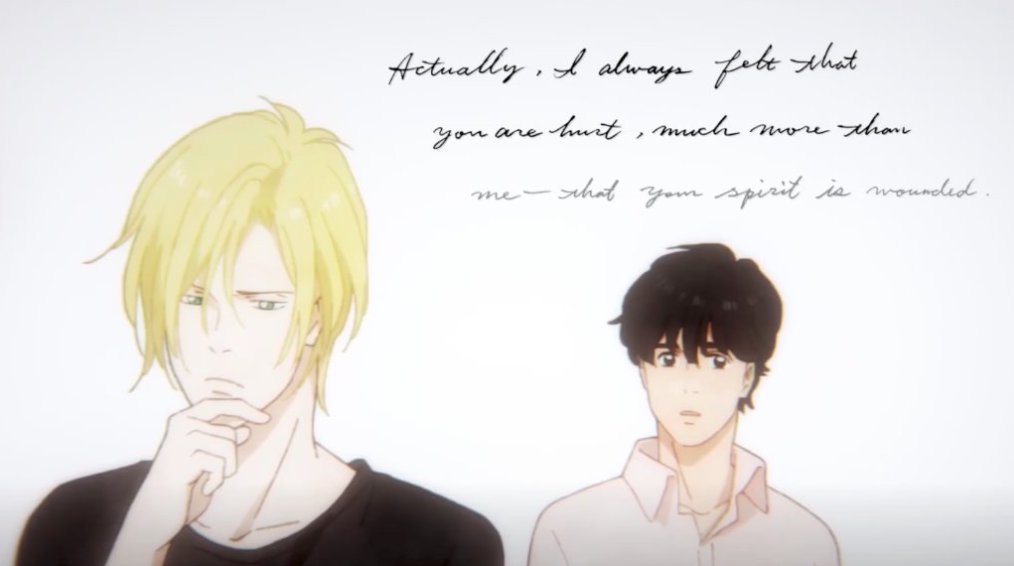
I mentioned earlier the finale sent an awful message to new viewers. Ash’s story was about survival so for him to easily give up, in the end, sent a horrible message to survivors of sexual violence because it not only told them a moment of vulnerability would get them killed, but the only way survivors could find any peace was through death. The fact that Ash gave up, told survivors they could never escape from their traumas and despite all their efforts, they would never be able to heal from their abusive circumstances.
During the 1980s Banana Fish was able to skillfully explore how power and control were intertwined to sexual violence and those core themes remain relevant today. Unfortunately, the ending completely negated what could have been a powerful survivor’s narrative, but instead, we are stuck with a story that perpetuates outdated problematic tropes.
Thanks to the MeToo Movement, we now live in a time where survivors can share their stories on how they survived their abuse without fear and as a community, we can hold abusers accountable for their actions. The legal system continues to fail survivors and prevents them from obtaining any form of justice. In response to that, Tarana Burke created the MeToo Movement so that survivors – particularly Black/Brown girls and womxn – could find different pathways on how to heal, create community and organize against sexual violence.
I know that MAPPA has changed the character relationship chart on their website, but I am tired of accepting crumbs and any forms of half-assed representation. It’s not good enough and my community deserves so much better.
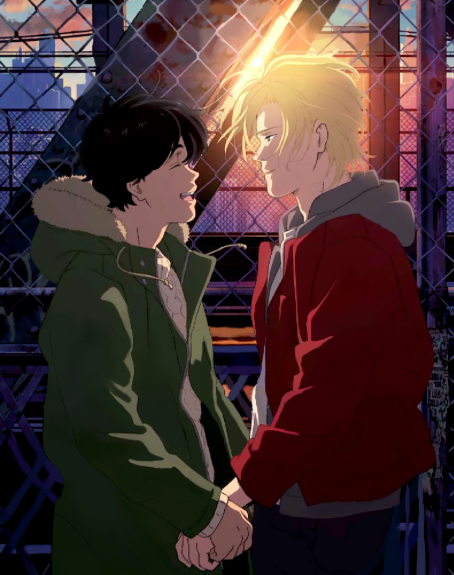
Final Thoughts
In the end, Banana Fish left me feeling with mixed emotions of anger, frustration, and sadness. Few stories have ever made me feel so strongly for their characters and if nothing else Banana Fish deserves plenty of praises for being an emotionally gripping series.
Would I recommend the series? I would give Banana Fish a cautious recommendation (pick your poison). In terms of historical research, I would definitely recommend the manga over the anime because the story accurately reflected what was going in the United States in terms of politics and how that negatively impacted marginalized communities both at home and aboard during the 1980s to 1990s with obvious trigger warnings for racial slurs and racist caricatures of Black characters.
It’s over folks. I can finally move on!!!!!
P.S.
Ok, now that Banana Fish has a faithful adaptation no one asked for, I now beg and call upon all QTBIPOC writers and animators to do their own thing with Banana Fish so they can give us the adaptation we want and deserve.
*QTBIPOC – Queer, Trans, Black, Indigenous, People of Color.
*MOGAI – Marginalized Orientations, Gender Identities and Intersex.